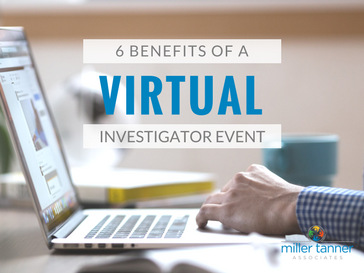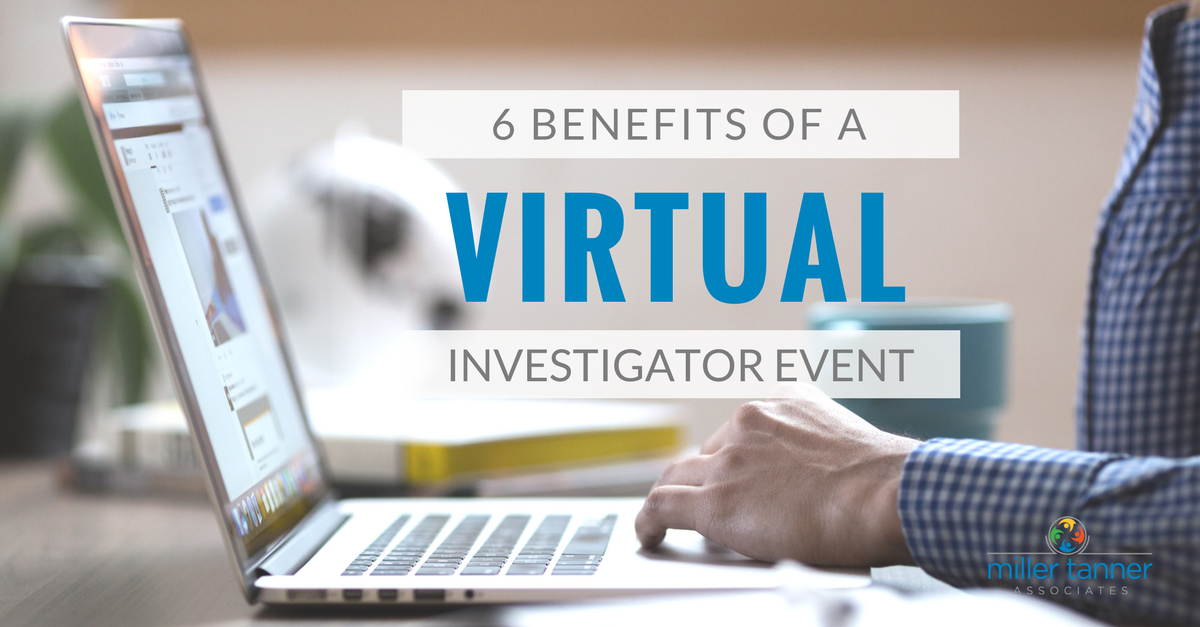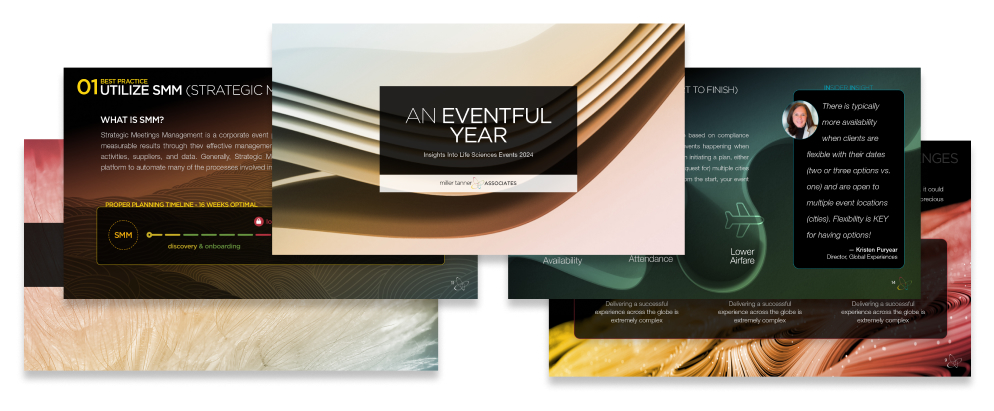Though face-to-face investigator events are ideal in many ways, virtual events, despite some misconceptions, can be an equally effective way to deliver your investigator meeting. Common reasons for offering a virtual investigator event might include:
- Short timelines – Virtual events can be planned with very little lead time compared to face-to-face events. Additionally, the length of the event itself is a more concise, efficient way to educate your audience.
- Urgent important protocol amendments – When urgent updates occur in your study, a virtual event is the quickest way to disseminate the information.
- Budget constraints – For limited budgets, a virtual event is an ideal solution for training, particularly for audiences that are in multiple locations and multiple time zones.
6 Benefits of a Virtual Investigator Event:
1. Improves Attendance
In some instances, virtual events can improve your attendance rate. The need to accommodate for attendees’ various schedules and travel can certainly impact face-to-face events which sometimes results in lower attendance rates. Since the event platform is desktop/laptop and mobile-friendly, attendees can join from anywhere that has internet. This makes virtual events a great, alternative option if you need to train multiple sites or if your sites are widely dispersed geographically.
2. Cost Savings
By removing the often costly logistical barriers such as air travel and lodging, virtual events generally cost 90 percent less than a face-to-face event making it the preferred option when budgets are restricted. And this in no way limits your content delivery as you can share more than just slides with a voiceover. With virtual events, you have the capacity to use a webcam and even play videos during the event so that your event is multi-media rich while also cost-friendly.
3. Time Efficient
Short on time? Virtual events are incredibly time efficient. This type of event can be consolidated into 4 hours versus multiple days required for a face-to-face event when you factor in travel time and loss of workday productivity.
4. Monitor and Measure Engagement
Will the attendees be as engaged and attentive when participating in a virtual event? This concern is often raised by those who are not familiar with the virtual event process. The answer is yes, absolutely, attendees will be as engaged and attentive in a virtual event environment. You can track and measure engagement by using polling questions and other virtual features that make the experience more engaging and dynamic.
5. Reporting
With virtual events, reporting is easy and offers valuable insights. Post-event reporting provides great detail about who joined the session and when, as well as questions that were asked during the event for any follow-up after your event. In addition to questions asked, we can provide responses to polling questions for additional follow up from the study team.
6. Ongoing Training
The bonus benefit of a virtual event is the option to repurpose the information for consistency and accuracy of future trainings. Virtual events can be recorded and used for future training needs, to reinforce knowledge retention, and as supplementary training since attrition may happen throughout the study.
By transforming your virtual event into on-demand training, through VALTs, you create a rich learning component by which to provide other training documentation and updates. On-demand training sessions support 21 CFR Part 11 Compliance with documented electronic e-signatures (time date stamp) and electronic records and live 24/7 reporting/tracking. On-demand training allows you to gauge users’ knowledge by adding assessment questions, passing thresholds, and training deadlines for completion. Not only does this give proof of training but you also gain a better understanding of retention trends among your attendees which helps determine future training goals.
Does a virtual event sound like it might be the right fit for your upcoming event? To explore your options, contact us! Read here for more answers regarding virtual events.
- Meet MTA: Steven Garberg, Software Engineer, MTA Technology Services - September 15, 2020
- Case Study: How a Hotel Contract Cancellation Clause Resulted in Zero Penalty During Pandemic - August 20, 2020
- Virtual Events: Frequently Asked Questions - August 11, 2020




